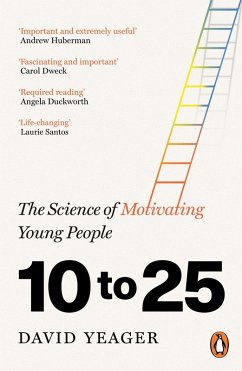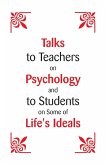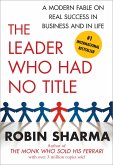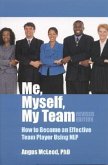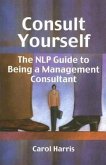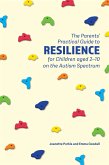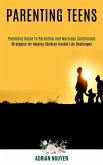Acclaimed developmental psychologist David Yeager reveals the new science of motivating young people in this groundbreaking book. It is a must-read for parents, educators and mentors. ___________________________________'Required reading for anyone who aspires to be a wise influence on the young people they care about.' Angela Duckworth'One of the most fascinating and important books of the past decade . . . It will change millions of lives.' Carol Dweck'This book is life-changing . . . a must-read for anyone who works with young people.'Laurie Santos, Professor of Psychology at Yale University and host of The Happiness Lab podcast'An important and extremely useful book.' Andrew Huberman__________________________________________In 10 to 25, David Yeager explains the emerging science of adolescent and young adult brains to reveal how we can engage, teach and support the young people in our lives. Neuroscientists have discovered that around age ten, changes in the brain spur young people to crave socially rewarding experiences, such as pride, admiration, and respect, and to become highly averse to social pain. This sensitivity to status and respect continues into the mid-twenties. 10 to 25 helps adults to use this science to learn how to encourage young people and avoid frustrating patterns of miscommunication and conflict. Yeager explains how to adopt the mentor mindset - a leadership style that's attuned to young people's need for status and respect - by following a few highly effective and easy-to-learn practices. These include validating young people's perspectives (rather than dismissing them), asking them questions (rather than telling them what to do), and holding them to high standards (rather than coddling them). Yeager's scientific experiments have shown these practices reduce a wide variety of behaviour problems, including mental health issues, unhealthy eating, stress and purposelessness. Young people in this age group are poised to learn, grow, and accomplish incredible things - if only we can tap into the basic neurobiological systems that drive their motivation and behaviour. 10 to 25 offers long-term strategies to help nurture well-adjusted, independent, accomplished young adults, and is necessary reading for all parents, educators and mentors.
Hinweis: Dieser Artikel kann nur an eine deutsche Lieferadresse ausgeliefert werden.
Hinweis: Dieser Artikel kann nur an eine deutsche Lieferadresse ausgeliefert werden.

